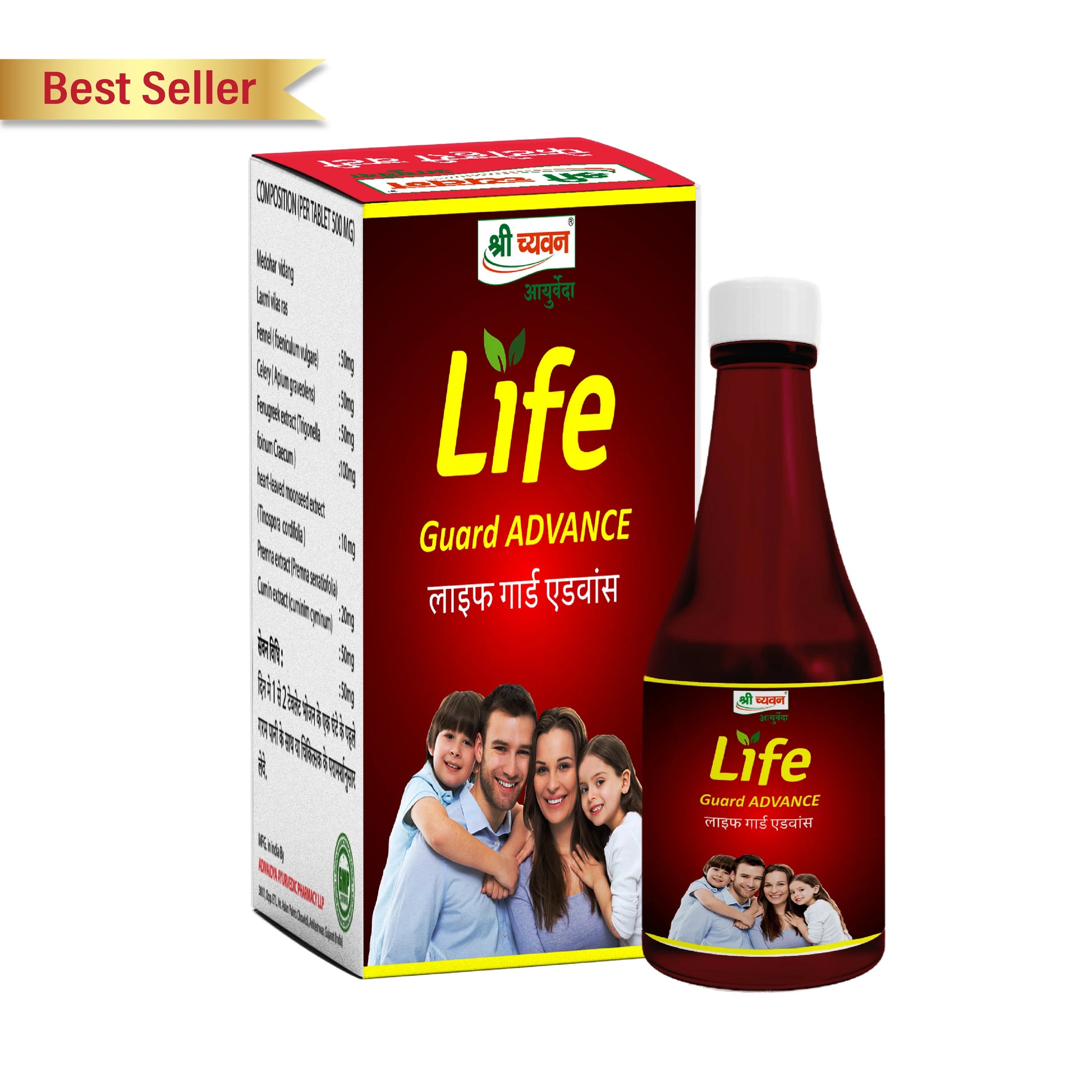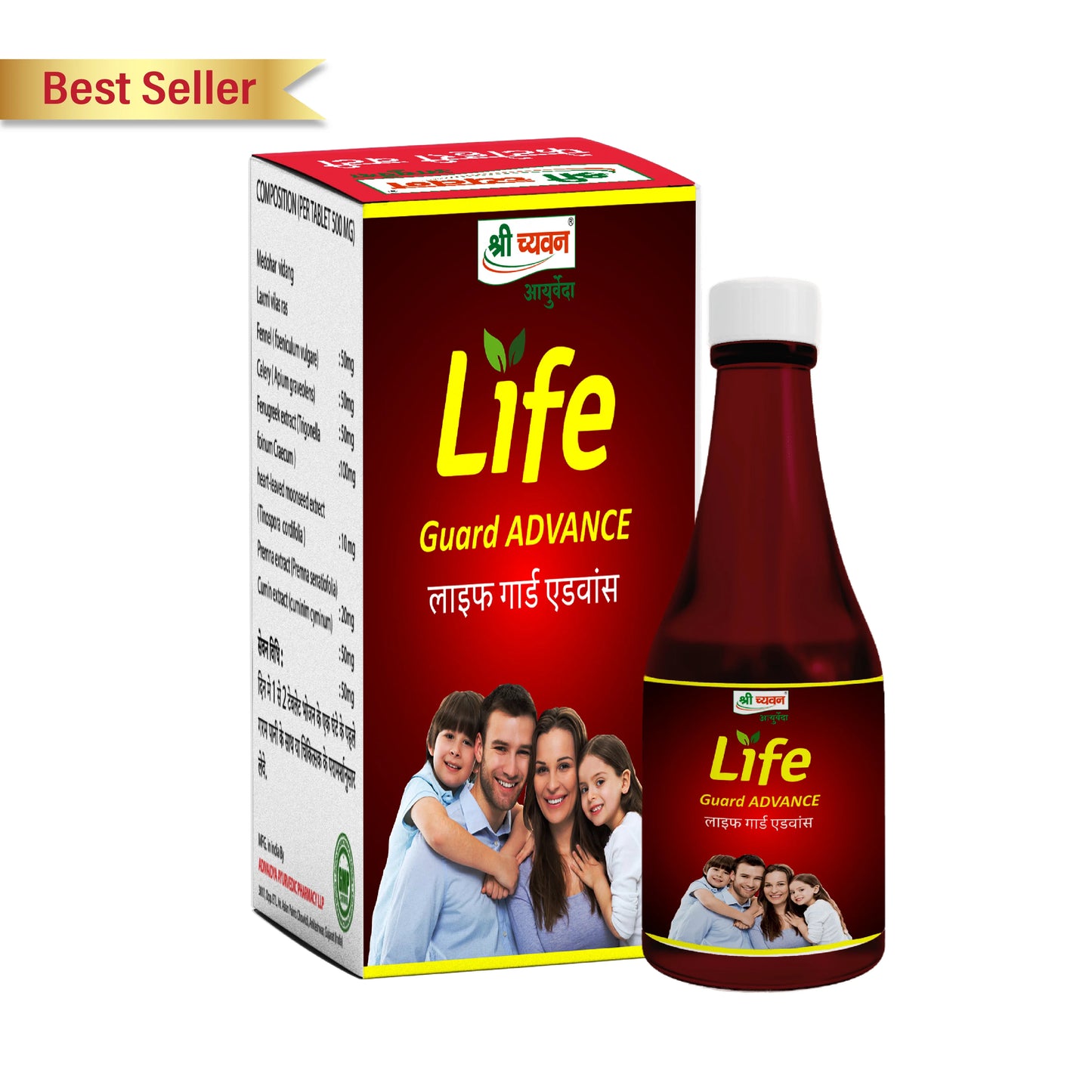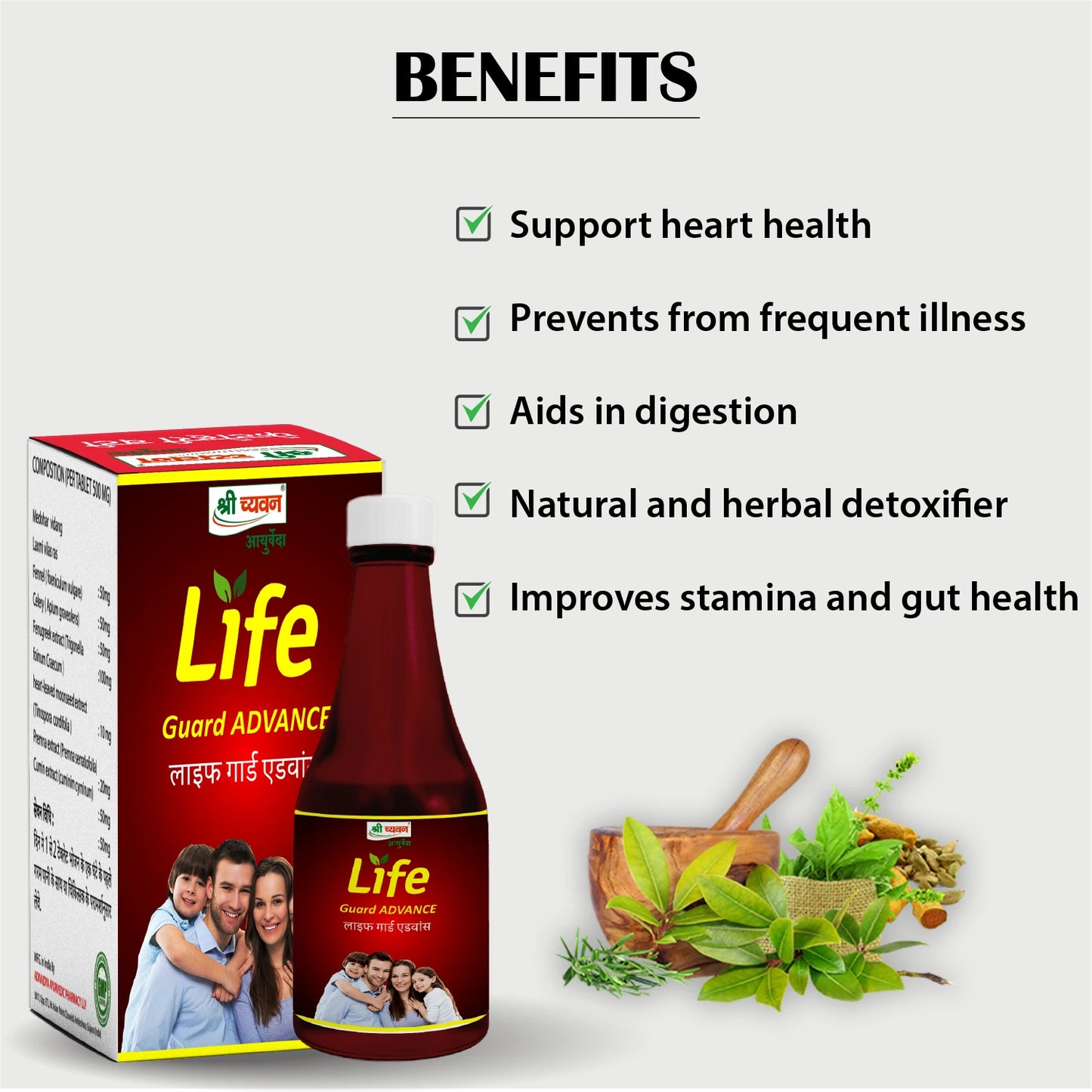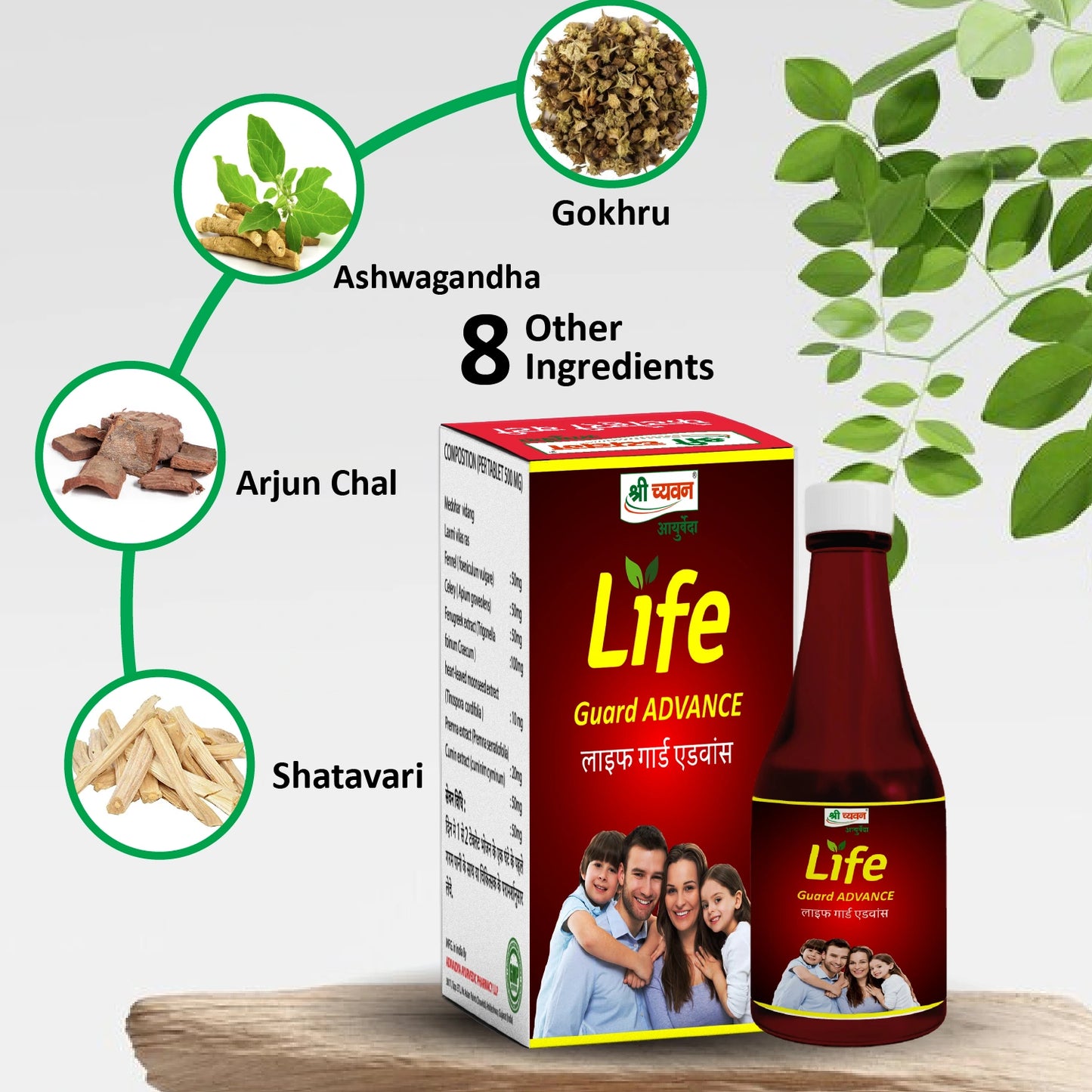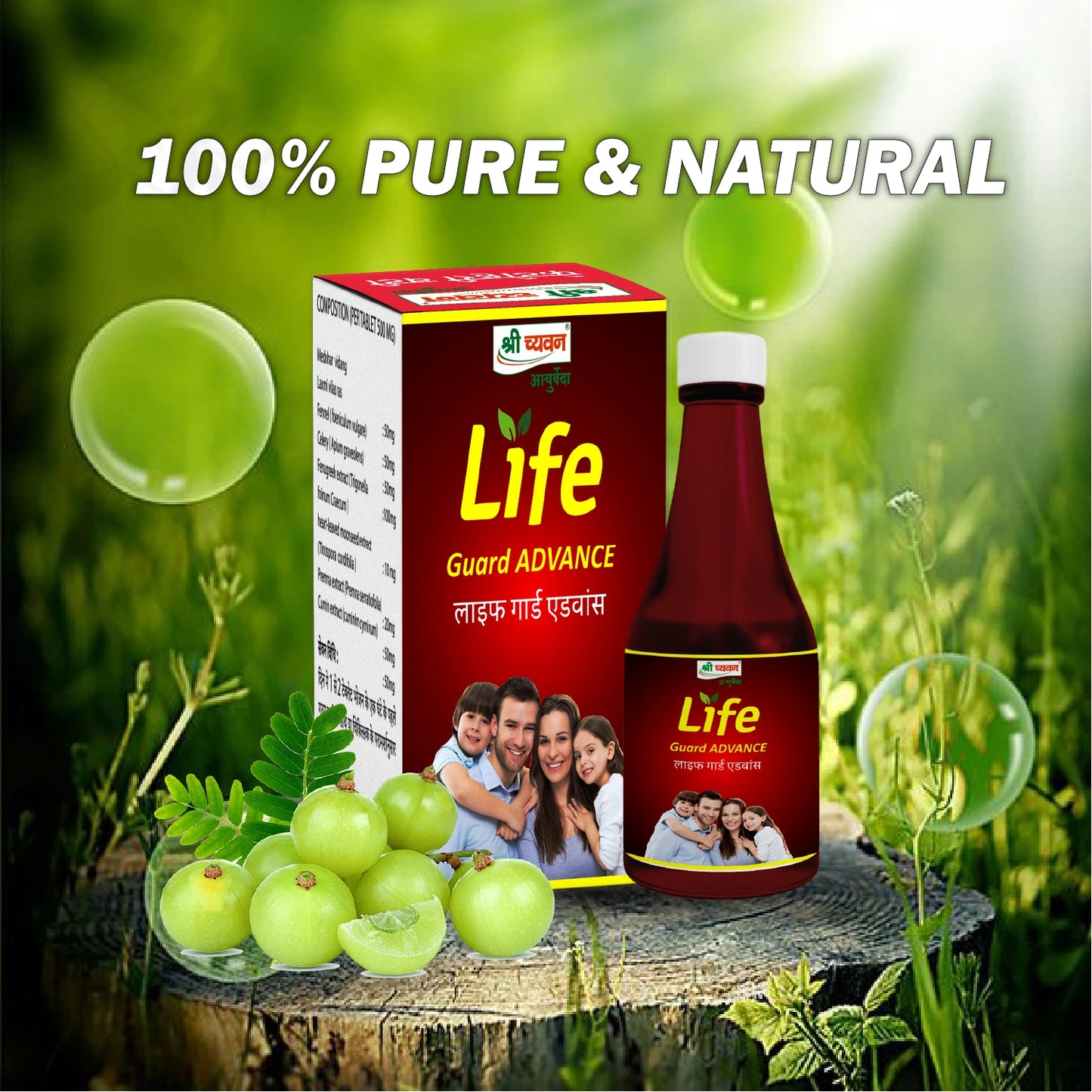Cholesterol management is crucial for maintaining heart health and overall well-being. While medications can help, dietary changes are a fundamental and natural approach to controlling cholesterol levels. Understanding what to eat and avoid is key to managing cholesterol effectively. Additionally, incorporating Ayurvedic and natural treatments like Lifeguard by Shri Chyawan Ayurveda can enhance your efforts. Thousands of happy customers have recommended Lifeguard for its efficacy in managing cholesterol.
Understanding Cholesterol
Cholesterol is a fatty substance produced by the liver and found in certain foods. It is essential for building cell membranes and producing hormones, but too much cholesterol can lead to heart disease and other health issues. There are two types of cholesterol:
- LDL (Low-Density Lipoprotein): Often referred to as "bad" cholesterol, high levels of LDL can lead to plaque buildup in arteries.
- HDL (High-Density Lipoprotein): Known as "good" cholesterol, HDL helps remove LDL cholesterol from the arteries.
What to Eat for Managing Cholesterol
1. Fiber-Rich Foods
- Oats and Barley: These whole grains contain beta-glucan, a type of soluble fiber that helps lower LDL cholesterol.
- Fruits and Vegetables: Apples, pears, prunes, and citrus fruits are rich in pectin, a type of soluble fiber that can reduce LDL cholesterol.
2. Healthy Fats
- Avocados: High in monounsaturated fats, which can lower LDL and raise HDL cholesterol levels.
- Nuts and Seeds: Almonds, walnuts, chia seeds, and flaxseeds are good sources of healthy fats and fiber.
3. Omega-3 Fatty Acids
- Fatty Fish: Salmon, mackerel, and sardines are rich in omega-3 fatty acids, which can lower triglycerides and improve heart health.
- Fish Oil Supplements: An alternative for those who do not consume fish.
4. Legumes
- Beans, Lentils, and Chickpeas: High in fiber and protein, they can help lower cholesterol levels and improve heart health.
5. Olive Oil
- A good source of monounsaturated fats, olive oil can help reduce LDL cholesterol and increase HDL cholesterol.
6. Green Tea
- Contains catechins, which can help lower LDL cholesterol and improve overall heart health.
What to Avoid for Managing Cholesterol
1. Trans Fats
- Partially Hydrogenated Oils: Found in some margarines, packaged snacks, and baked goods, trans fats increase LDL and decrease HDL cholesterol.
2. Saturated Fats
- Red Meat and Full-Fat Dairy: High consumption of saturated fats can raise LDL cholesterol. Opt for lean cuts of meat and low-fat dairy alternatives.
3. Processed Foods
- Fast Food and Snack Foods: Often high in unhealthy fats, sugars, and salt, which can negatively impact cholesterol levels.
4. Sugary Foods and Beverages
- Sodas and Sweets: High sugar intake can lead to weight gain and higher cholesterol levels.
5. Fried Foods
- Fried items are often cooked in unhealthy oils that can raise LDL cholesterol.
Ayurvedic and Natural Treatment: Lifeguard by Shri Chyawan Ayurveda
In addition to dietary changes, natural treatments like Lifeguard by Shri Chyawan Ayurveda can play a significant role in managing cholesterol levels. Lifeguard is a holistic Ayurvedic formulation designed to support heart health and maintain healthy cholesterol levels. Thousands of happy customers have reported positive results with Lifeguard.

Key Ingredients and Benefits of Lifeguard
1. Arjuna (Terminalia arjuna)
Known for its cardioprotective properties, Arjuna helps in maintaining healthy cholesterol levels and improving heart function.
2.Guggul (Commiphora mukul)
Effective in reducing LDL cholesterol and triglycerides while increasing HDL cholesterol.
3. Amla (Indian Gooseberry)
Rich in Vitamin C and antioxidants, Amla helps in reducing cholesterol levels and preventing oxidative stress.
4. Haritaki (Terminalia chebula)
Promotes healthy digestion and detoxification, which can indirectly support cholesterol management.
How to Use Lifeguard
For optimal results, follow the dosage instructions provided by Shri Chyawan Ayurveda or consult an Ayurvedic practitioner. Typically, Lifeguard is taken twice daily after meals with water.
Managing cholesterol levels is essential for heart health and overall well-being. By making informed dietary choices and incorporating natural treatments like Lifeguard by Shri Chyawan Ayurveda, you can effectively control your cholesterol levels. Thousands of satisfied customers have found success with Lifeguard, attesting to its efficacy in supporting heart health and maintaining healthy cholesterol levels.
FAQ's
Q1: How does diet impact cholesterol levels?
A1: Diet plays a crucial role in managing cholesterol levels. Consuming foods high in saturated fats, trans fats, and cholesterol can raise LDL ("bad") cholesterol levels, while a diet rich in fiber, healthy fats, and certain nutrients can help lower LDL and raise HDL ("good") cholesterol.
Q2: What are the best foods to eat to lower cholesterol?
A2: Foods that can help lower cholesterol include:
- Oats and other whole grains
- Fruits like apples, pears, and berries
- Vegetables, especially leafy greens
- Nuts and seeds, such as almonds and flaxseeds
- Fatty fish like salmon and mackerel
- Olive oil
Legumes, including beans, lentils, and chickpeas
Q3: What foods should I avoid to manage my cholesterol levels?
A3: To manage cholesterol levels, it's best to avoid or limit:
- Trans fats (found in partially hydrogenated oils and many processed foods)
- Saturated fats (found in red meat, full-fat dairy products, and some oils like palm oil)
- Sugary foods and beverages
- Fried foods
- Processed and fast foods
Q4: How does fiber help in managing cholesterol?
A4: Soluble fiber, found in foods like oats, barley, fruits, and legumes, can help reduce LDL cholesterol by binding to cholesterol particles in the digestive system and removing them from the body before they enter the bloodstream.
Q5: Can healthy fats improve cholesterol levels?
A5: Yes, healthy fats such as those found in avocados, nuts, seeds, and olive oil can help increase HDL cholesterol and lower LDL cholesterol. These fats replace unhealthy saturated and trans fats in the diet.
Q6: How often should I eat foods that help lower cholesterol?
A6: Incorporating cholesterol-lowering foods into your daily diet is ideal. Aim to include sources of soluble fiber, healthy fats, and omega-3 fatty acids in each meal to maximize their benefits.
Q7: Is it necessary to completely eliminate foods high in cholesterol from my diet?
A7: It's not necessary to completely eliminate all high-cholesterol foods, but it is important to limit intake and choose healthier alternatives when possible. Focus on reducing saturated and trans fats more than dietary cholesterol itself.
Q8: Are there any specific beverages that can help lower cholesterol?
A8: Yes, certain beverages can help, including:
- Green tea, which contains catechins that can lower LDL cholesterol
- Drinks with added plant sterols or stanols
- Unsweetened, fiber-rich vegetable and fruit juices
Q9: How soon can I expect to see changes in my cholesterol levels after altering my diet?
A9: Changes in cholesterol levels can be seen in as little as 4 to 6 weeks after making dietary adjustments. However, for significant and sustained improvements, it's essential to maintain these healthy eating habits long-term.
Q10: Can weight loss help in managing cholesterol levels?
A10: Yes, losing weight can help lower LDL cholesterol and triglycerides while raising HDL cholesterol. Combining a healthy diet with regular physical activity can enhance these effects.
Q11: Are there any natural supplements that can help manage cholesterol levels?
A11: Certain natural supplements, such as those containing omega-3 fatty acids, plant sterols, and soluble fiber like psyllium, can help manage cholesterol levels. However, it's important to consult with a healthcare provider before starting any supplements.
Q12: How does alcohol consumption affect cholesterol levels?
A12: Moderate alcohol consumption, particularly red wine, has been shown to potentially raise HDL cholesterol. However, excessive drinking can lead to higher triglycerides and other health problems. It's best to consume alcohol in moderation or not at all.


